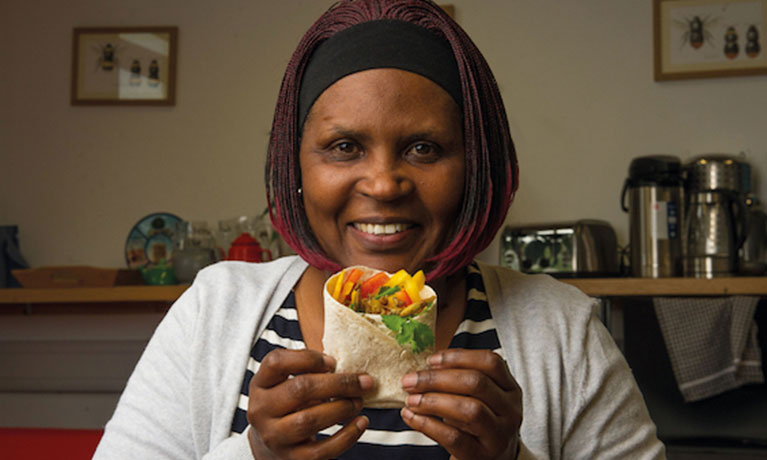Search
Eat a fried grasshopper at Coventry University event

Friday 05 January 2018
Press contact
An academic is to give a talk on how edible insects could help solve the world food crisis - and give her audience the chance to sample fried grasshoppers.
Liliane Binego, a researcher at Coventry University’s Centre for Agroecology, Water and Resilience (CAWR), is investigating the potential of edible insects – such as grasshoppers and locusts – to tackle global problems such as famine and malnutrition.
There are more than 2,000 different species of edible insect. They can provide an alternative source of food due to their high levels of protein and other nutrients. Once they are dried they can keep for up to a year.
Ms Binego will talk about her research at an event at CAWR’s Ryton headquarters on Thursday, 11th January.
As part of her study, she interviewed and observed more than 200 people in Niger and Uganda who make their livelihoods from edible insects to understand more about how these creatures are naturally harvested, farmed, distributed and sold in Africa.
Among those she spoke to were rural insect harvesters who catch grasshoppers at night using huge lamps to attract the insects, as well as women who sell the roasted insects in markets and offices in the countries’ capitals of Niamey and Kampala.
She has also looked at the challenges in the edible insect industry, including that many of the insects are seasonal and that the harvesting of them results in high energy costs, because so many lights are needed to attract them to one particular place for collection.
She says that in the long term an efficient and cost-effective way of wild harvesting and rearing the creatures has to be developed.
But she admits that one of the key hurdles to overcome is changing people’s attitudes towards eating these insects.
Liliane said:
“This is a hidden harvest – but it has huge potential. We need to understand fully how we can harness this vital wild resource. There are millions of people throughout the world do not have access to a nutritionally balanced diet and who could benefit. In some countries edible insects are regarded as a delicacy and some people rely on them for their livelihoods, but there are still many limitations that we have to understand and overcome if they are to help improve food security. Many people are disgusted by the thought of eating a locust or grasshopper. We have to look at changing people’s attitudes and prejudices about them. They can be eaten raw or dried, boiled, roasted or fried, with different spices or marinades. Personally, I prefer them roasted with a bit of onions, garlic, salt and pepper. I’m looking forward to sharing some fried grasshoppers with the audience at my talk.”
The talk takes place at CAWR, Ryton Organic Gardens, on Thursday, 11th January, from 11.45am.
Places must be booked in advance. Email CAWRoffice@coventry.ac.uk to register.
The event will also be streamed live on CAWR’s Facebook page: www.facebook.com/CovUniCAWR/
For further press information, interviews – or to arrange a tasting of Liliane’s edible insects - please contact Alison Martin, press officer, Coventry University, on 02477659752 or email alison.martin@coventry.ac.uk.






